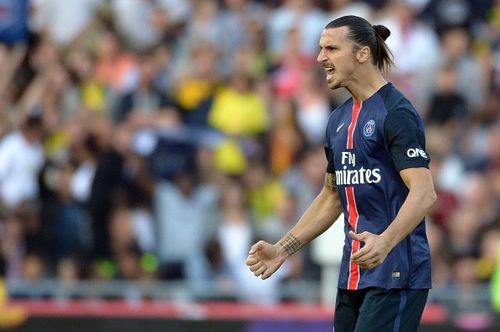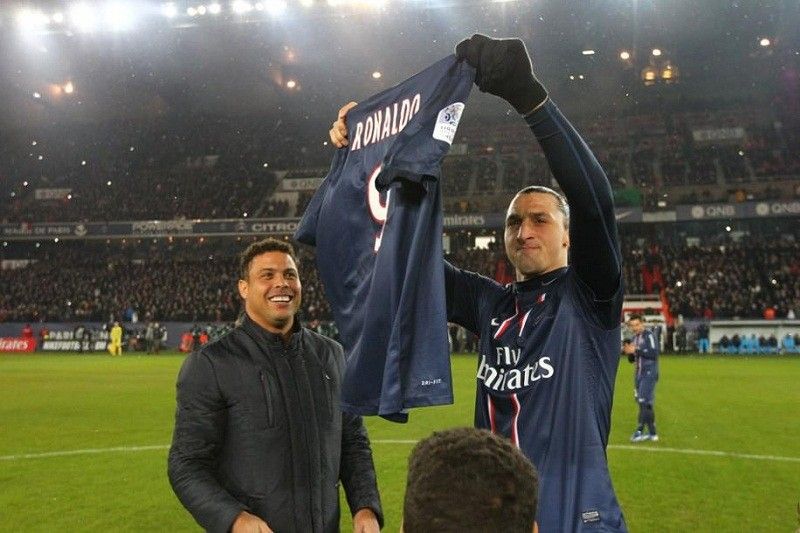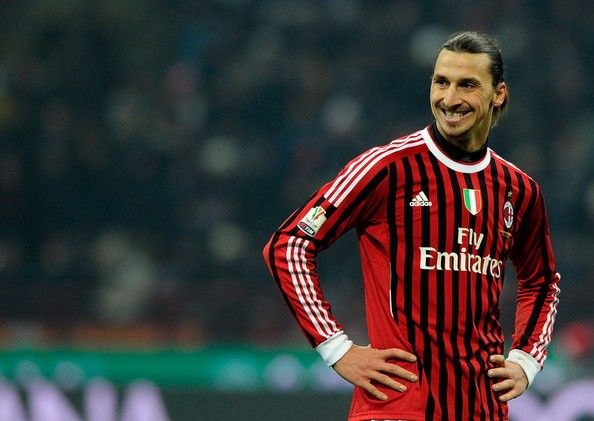
From ghettos to European elite: The rise of Zlatan Ibrahimovic

Flamboyant, arrogant and egoistic. These are the most common adjectives used to describe Zlatan Ibrahimovic – one of the greatest players of our generation and arguably the greatest Nordic player of all time. He has heard of this popular perception of him, but he remains unperturbed as he has heard it all from a young age. He has shone the light on a different side of him in his autobiography, but even now very few people know of his humble beginnings.
You may not have heard of his story, but you know his story. His is a story of a kid who endured a difficult childhood, had immense talent and eventually realised his dream. You have read such stories about Lionel Messi or Cristiano Ronaldo. His story has the same storyline of a modern fairy-tale you already know, but you haven’t heard it yet.
The thug of Rosengard
Born to a Croatian mother and hard-drinking Bosnian father, he was born in Rosengard – a large immigrant neighbourhood in Malmo, Sweden. He grew up in a ghetto, a term he used to describe his childhood neighbourhood. He was a bully, a thief, a rowdy and a troublemaker. In school, he was the perfect example of a teacher’s nightmare. His parents splitting up when he was just two years old didn’t help either.
The ghetto made him the way he is and that also includes Zlatan the footballer we all know. The Swede has admitted that it was the ghetto that taught him the football he knows. In the small, dusty pitches of Rosengard, it was all about who could perform the most outrageous tricks, flicks and shots.
He had a love for the unusual and that’s probably why his heroes were Brazilians and not Swedish. The Ibrahimovic we know reserves his praises. But if there is one man he has heaped praises on, it is his idol Ronaldo Luiz Nazario de Lima.
With his build and skills, football was his ticket out of Malmo. But at the age of 17 he almost shut that door on himself. He had joined the local club Malmo FF and in a training session he head-butted one of his teammates. The player got a letter from his parents and asked people to sign it to kick Ibrahimovic out of the club.
In an interview with BBC, Ibrahimovic looks back at such incidents and explains: “I did many stupid things, I made many mistakes, but I learnt from everything. I still make mistakes, I still learn from them. Nobody is perfect. I had a lot of walls to break through to get here."
Rebel to Europe’s most reliable striker
The Swede’s talent was there for everyone to see and it was time for him to move to greener pastures. Ajax Amsterdam is known for honing talented youngsters into superstars and in 2001 it snapped up young Ibrahimovic by beating off interest from Arsenal and Monaco.
In the next 14 years, Ibrahimovic would go on to play for six different clubs in four different European countries and win twelve league titles along the way!
What made him so successful? How has he managed to consistently deliver for such a long period of time when other successful and younger strikers from the same period like Radamel Falcao, Fernando Torres and Robin van Persie have faded away?
The modern game has evolved so much that scoring goals is not enough for a striker. Standing tall at 6’5”, he has in his arsenal the tools to be a successful traditional number nine who is strong in the air and has the ability to finish with either foot. But Ibrahimovic didn’t limit himself to a target man; instead he adapted according to the need of the hour and it is his ability to adapt to changing scenarios that has helped him be so successful.
He has managed to perform well in four different countries without needing much time to settle in and that alone shows his adaptability. He has moulded his style of play according to the changing game, as well as the change in scenery. How does he do it?
For someone who is so tall and strong, Ibrahimovic is very flexible, acrobatic, has great dribbling skills and possesses immense balance. His famous goal against NAC in 2004 while playing for Ajax is a testament of the above-mentioned qualities he has.
Ibrahimovic also has great vision and creativity, and these are also traits that are not common among forwards. The Swede scores plenty of goals and he sets up his teammates on numerous occasions. And the stats back this claim.
In his previous five full seasons, Ibrahimovic has provided 42 assists in league competitions alone. In the same period, Arjen Robben, a winger, has 31 league assists to his name and that should put things into perspective.
Ibrahimovic can score spectacular goals, he can play as a traditional forward, he can dribble past multiple players, he can set-up his teammates and he can still do them all even though he is 34 and that is precisely why his is a success story.
European heartbreak
For a player who has played for Ajax, Juventus, Internazionale, Barcelona and AC Milan, who have collectively won the Champions League 21 times, he is still searching for his maiden Champions League title. The only European title that Ibrahimovic has won is the UEFA Super Cup he won with Barcelona in 2009.
Sometimes his decision to leave a certain club at a certain time has cost him the coveted title. For example, in 2009 when he left Inter to join defending European Champions Barcelona, his former club went on to win the treble. A year later, he left the Catalan club after falling out with Pep Guardiola, only to see Barcelona win the Champions League while he was on loan at Milan.
His current club PSG have built a squad capable of winning the Champions League, but the club hasn’t crossed the quarter-finals stage in the last three attempts. This season could be Ibrahimovic’s last chance to realise his dream of winning the ever-elusive Champions League title or he will emulate his idol Ronaldo and go down with the Brazilian as one of the greatest players to have never won the Champions League.
But no matter how the season pans out, Zlatan Ibrahimovic will go down in history as one of the greatest players to have graced the beautiful game.


